7 French hacks with Antony Blinken speaking French

French language hacks you can use today
Did Secretary of State Antony Blinken just hack his way into perfect French? Maybe he didn’t, but YOU certainly could. And because it’s my job to help international workers become fluent in French fast, I am going to show you 7 hacks that Antony Blinken uses in this interview and that you can start using today to speak French as well as he does.
Watch the video and/or check out the notes below.
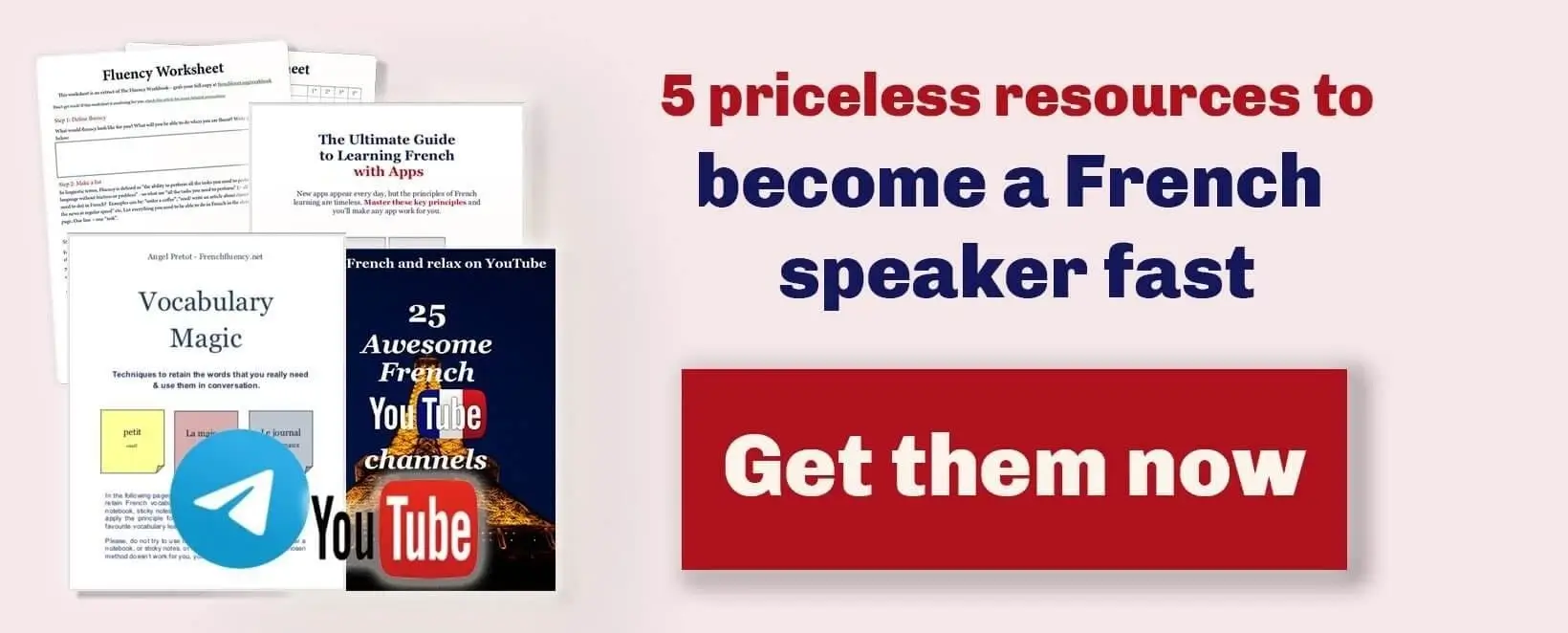
1. English French cognates : real friends
First, do not under-estimate cognates, a.k.a “real friends”.
The more advanced the topic you need to discuss in French, the more you will use words that are exactly similar to English.
Here is a sentence from Antony Blinken’s interview with English-French cognates in bold:
"C’est un approfondissement, à la fois, au niveau de la consultation et communication, mais aussi sur la coordination et la coopération sur les dossiers les plus importants qui lient nos deux pays, que ce soit l’Indo-pacifique même, où nous allons travailler plus étroitement ensemble, au Sahel où, déjà, il y a un partenariat très important qui va s’approfondir, ou dans l’espace euro-atlantique, y compris sur les questions de sécurité."
How to guess real French English cognates:
English contains about 50% of French words, and those are mostly advanced words. So the more you progress in your French learning journey, the easier the vocabulary gets.
Here are two tricks to know which English words will be the same in French:
1) French words are typically longer. So if your English word has 3 syllables or more, you stand a good chance that the French word is the same.
2) French words tend follow a pattern: “consonant-vowel-consonant-vowel etc.”, while non-French English words don’t. If your word neatly alternates between consonant sound and vowel sound, it’s most likely the same in French.
Once you recognize those words, pronounce them according to the French pronunciation and with your best French accent, and voilà! you have successfully learned some French vocabulary.
Note: this technique works about 95% of the time. Occasionally you’ll find a word that the French don’t have, but it works often enough to rely on it.
2. Impressive yet easy grammar # 1: connectors
There are words that allow you to string sentences together without having to know advanced grammar. You just keep speaking as if you were making separate sentences.
These connector words are: mais - ou - et - donc - or - ni - car - puis - parce que
Antony Blinken’s French tip: use one of those + an adverb to sound fancier
Check out these examples from his interview:
"Et justement, on fait mieux, parce que, suite aux instructions des deux présidents, ce qu’on fait maintenant depuis quelques semaines, c’est un approfondissement, à la fois au niveau de la consultation économique mais aussi sur la coordination et la coopération sur les dossiers les plus importants."
3. Impressive yet easy grammar #2: Expressions that call for the infinitive
Here is another way to make impressive sentences without any advanced grammar, which Antony Blinken keeps using.
3.1 Two French verbs in a row:
In French, if you have two verbs in a row, the second one will always be in the infinitive. This means you don’t need to learn any conjugation at all to use them. You can save a lot of learning efforts this way.
You can say things like “je vais aller” for “I will go”, instead of learning the irregular future of the verb aller. This works for every verb. You never need to learn the future!
Je vais + infinitive = I will + verb
Je peux + infinitive = I can + verb
You can use some fancier expressions. Here’s an example from the interview:
“on aurait pu, on aurait du faire mieux” = we could have, and we should have, done better
You can learn these as chunks:
“on aurait pu + infinitive” = we could have +past participle
“on aurait du+ infinitive” = we should have +past participle
3.2 Adjectives that call for the infinitive
Many adjectives can be followed by a preposition and the infinitive. Here’s one example from the interview:
“j’étais content de pouvoir passer du temps avec… “
content de + infinitive = happy to +infinitive
3.3 Expressions that call for the infinitive
Many French expressions will be followed by the infinitive. Here’s two from the interview:
“avoir tendance à prendre pour acquis”
Avoir tendance à + infinitive = to tend to + verb
L’intérêt, c’est de + infinitive = the advantage is to + verb
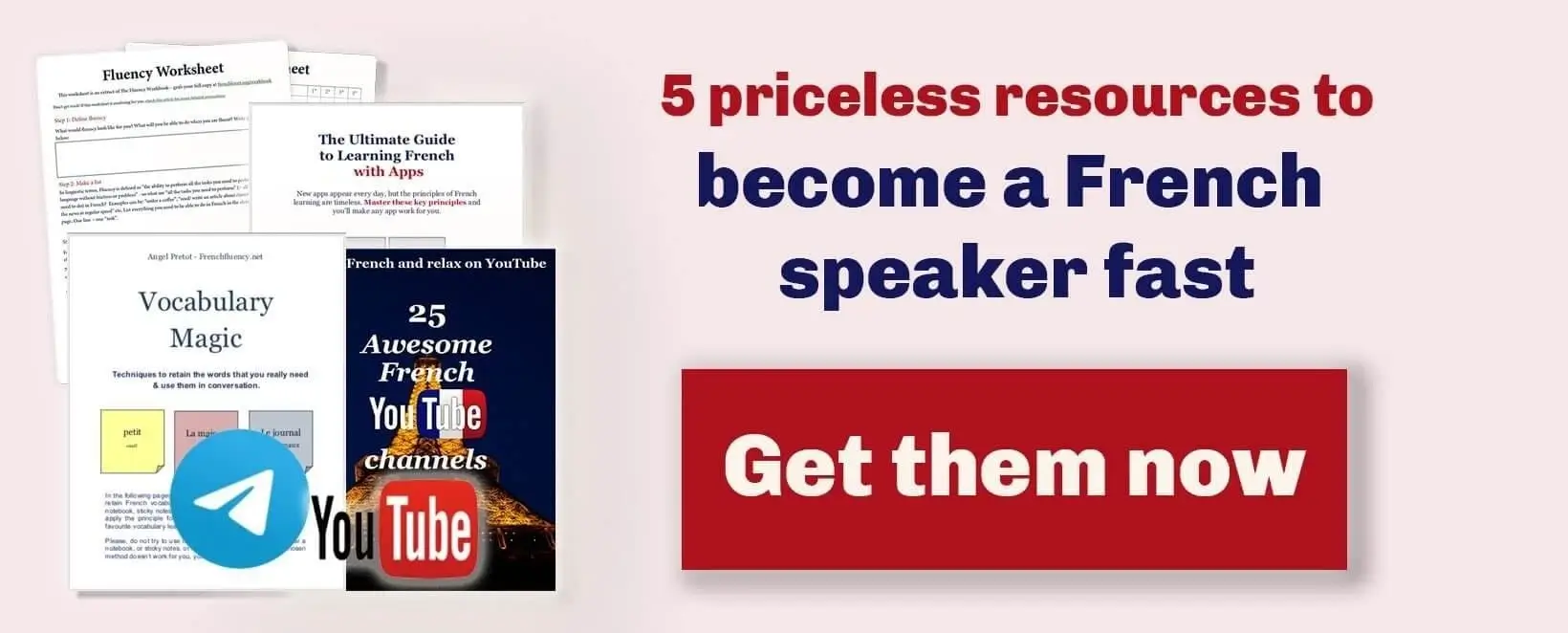
4. Saying things in a simpler manner
avoid what you don’t know how to use (e.g. subjunctive)
There are a lot of French connector words that are difficult to use because they call for the subjunctive, or otherwise modifying French grammar.
The key to dealing with those challenges at first is to be really good at avoiding them. Antony Blinken is excellent at it.
Here is an example of him breaking his thoughts in simple chunks, that don’t need any advanced grammar:
“Si on définit engagement par 'combien de troupes vous avez dans tel ou tel endroit', ça c’est une question."
'Si on définit engagement par 'quel est votre engagement diplomatique, politique, économique, et surtout avec alliés et partenaires', je crois que nous sommes très engagés.”
Here is another one:
“La relation avec la Chine…. C’est une relation qui est très complexe, qui a énormément de conséquences. Ça ne peut pas se définir dans une seule phrase. Il y a des aspects de compétition, il y a des aspects de coopération, il y a des aspects de conflits.
Que ce soit coopération, que ce soit compétition, que ce soit même conflit, l’autre intérêt c’est de pouvoir faire ce travail en commun avec nos partenaires, nos alliés, pour faire face aux défis, mais aussi pour trouver les moyens de travailler avec la Chine, *qui* est aussi incontournable.”
I haven’t heard one subjunctive, in the whole interview. Maybe he doesn’t know how to use it, but he knows very well how to avoid having to use it - and this is something I recommend.
Being fluent doesn’t mean knowing all the words and all the grammar, it means being able to use the words and grammar you know to express everything you want to express.
Not only is it easier for him to express himself in this way, but it is also easier for the listener to follow.
This tip applies to public speaking too: simpler is better, even in your native language.
Pro Tip = learn to express yourself in simpler English.
It will improve your communication abilities in English, and it will be easier to carry this practice into French, as you tend to repeat the same patterns in different languages.
5. Prioritise French pronunciation
Antony Blinken’s pronunciation is pristine, we can barely hear a slight American accent. He even says “heu” as a filler word instead of a “hmm”, “huh”, as English speakers do. He sounds almost like a native.
Should you try to sound like a native?
Probably not. In my experience most non-natives will be better off if they have a slight accent.
For example I don’t sound like a native English speaker. In the video, you can hear that I’m French. In my case it’s beneficial because you can understand that I have learned English very successfully and that I am also a native French speaker.
This allows me to show my competence in learning languages without even having to tell you - and since I’m a French learning coach, it’s very helpful. It can be a personal branding element, and will help display your language abilities. You pass as a sophisticated world citizen. Being mistaken for a native means you miss out on all of that.
However:
If your pronunciation is not good enough to be understood, practicing pronunciation until natives understand you easily is the best way to boost your French fast.
It’s easy to improve your pronunciation if you practice specifically for a few weeks. I make personalized tongue-twisters for my 1-1 clients. I have also released many pronunciation videos.
6. Fancy words that sound good but aren’t hard to use.
Pro tip: The easiest fancy words to use are adverbs
Antony Blinken uses a lot of them. They’re also cognates most of the time, so they’re pretty easy to learn. You just need to switch the English “ly” ending for the “ment” ending in French:
Effectivement = effectively
Premièrement = first (primarily)
Seulement = only (solely)
Probablement = probably
7. Rehearse & speak confidently
It seems that Antony Blinken has rehearsed those topics. He probably speaks about those topics frequently.
If you have to speak about the same topics often, it’s good to rehearse them ahead of time so you can be more confident when it’s time to use them.
How else can you increase your confidence?
7.1 Practice in a safe space.
As a French coach, it’s my job to provide the right space for you to make progress without pressure, whether in 1-1 sessions, or in group session within the French Fluency Accelerator.
Another thing that I like to use with my students are meditations (click here for a special French learning meditation I created) and affirmations (click here for my hand-picked French learning affirmations). These help unleash your French speaking abilities to speak as confidently as Mr. Blinken does. Just give it a try and watch the results!
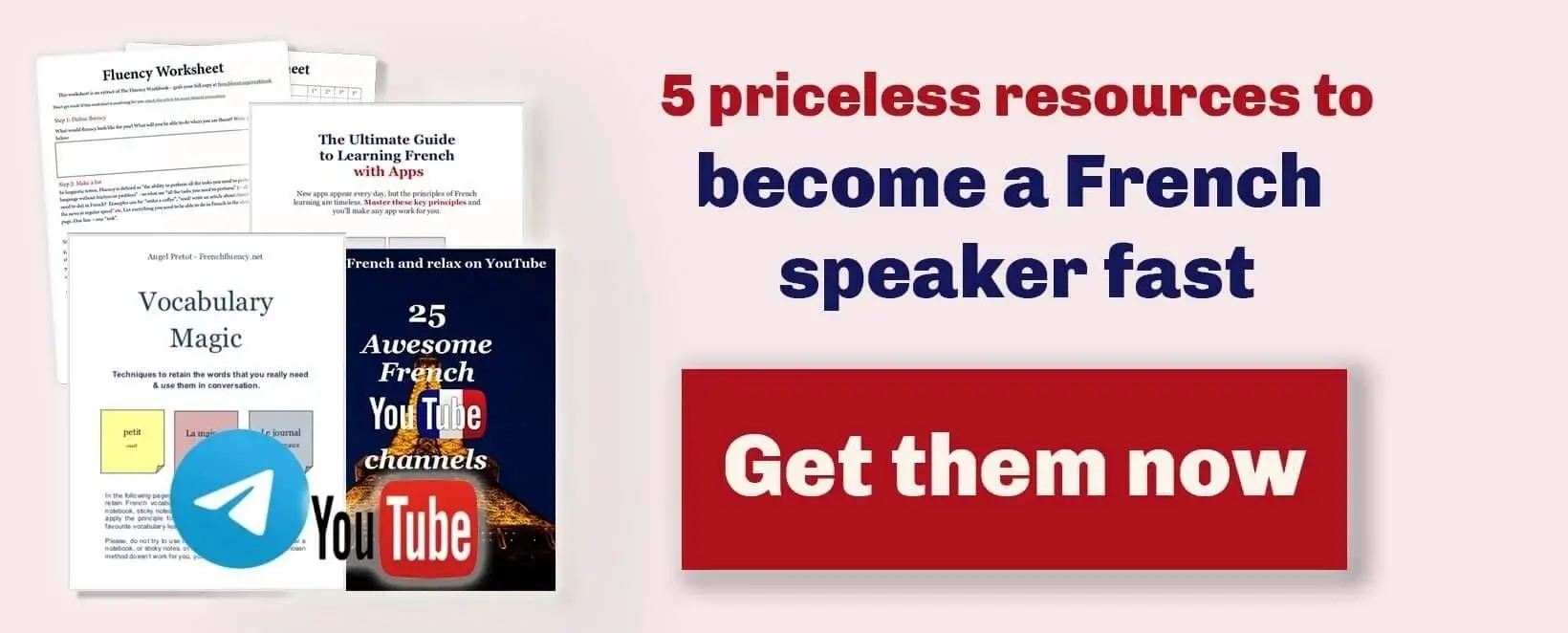
Your next steps:
If you like this way of learning French, you will love to learn with me as a student or client. Please check out:
- My 1-1 coaching program, The French Transformation, if you need to improve your French fast.
- My group program, The French Fluency Accelerator, if you’d like to join a community of students from all over the world. We have weekly practice calls together and the best online video library to learn French.
Pro tip: you don’t need to choose!
All my 1-1 clients are invited to join the French Accelerator free of charge.
Feel free to book a call with me now to discuss options.
If you liked this, here's some more:
8 French lessons with Timothee Chalamet speaking French
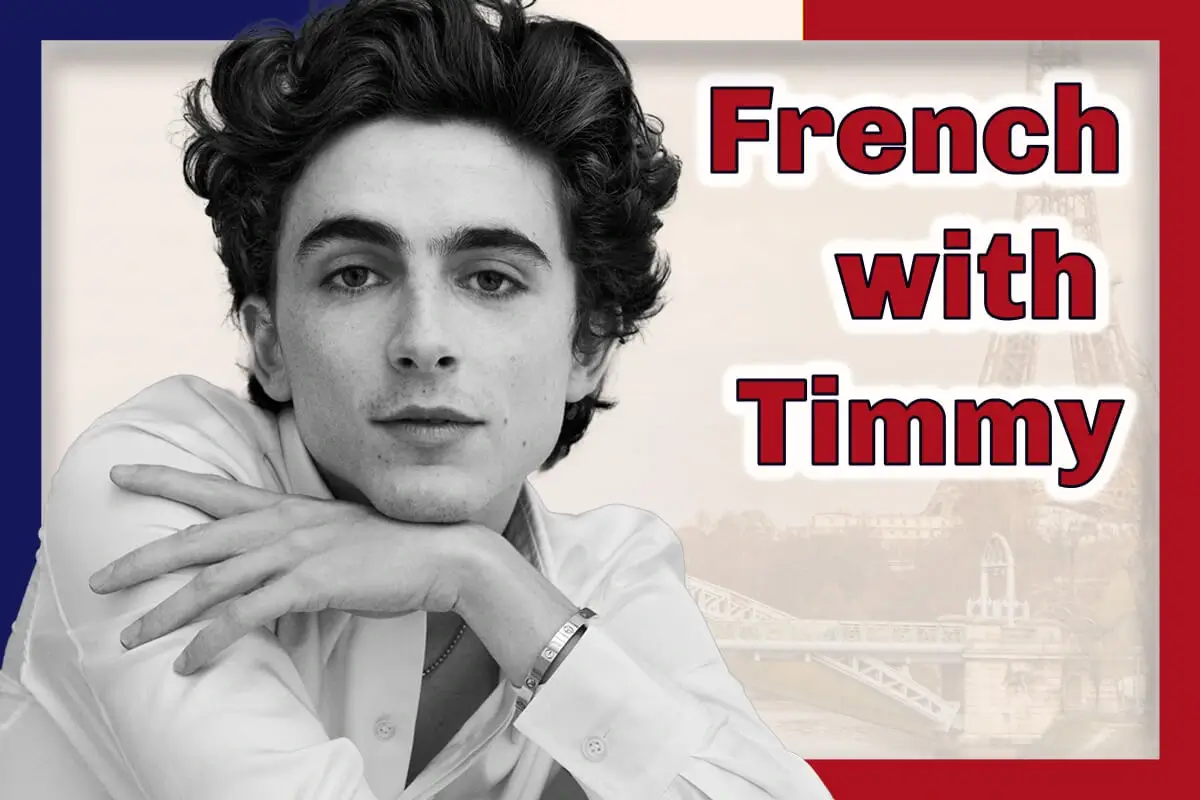
10 French phrases you need to know before your first trip to France

About the Author
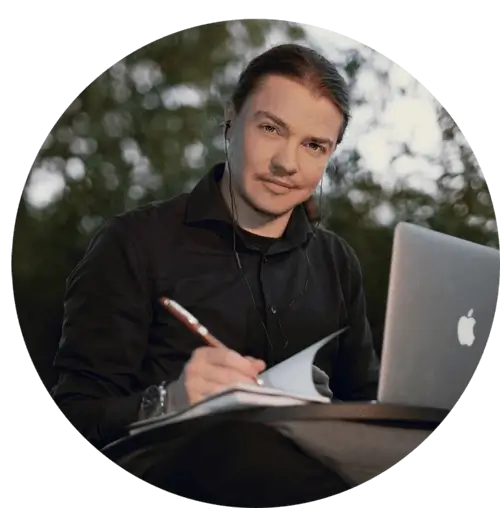
Angel Pretot is a French learning coach. He helps English speakers from all over the world learn French fast and become fluent. You can work with him one-on-one (online via zoom or a similar software) or join a global community of French learners in his group program the French Fluency Accelerator.